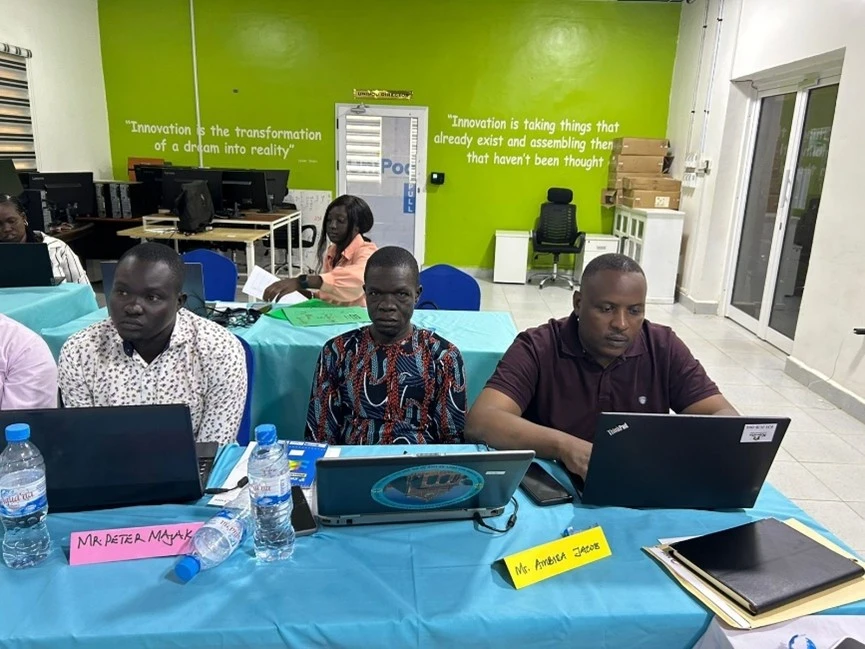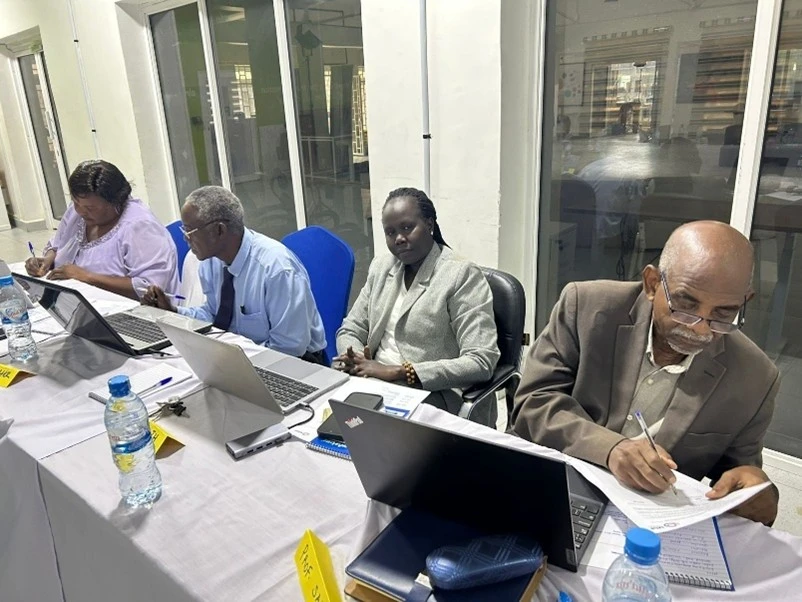Digital learning is increasingly becoming crucial for university-level instruction, and especially as an inclusive approach for populations in vulnerable environments. In South Sudan, the University of Juba (UOJ) is making significant efforts to equip its faculty and other support teaching staff with the necessary tools, skills, and mindset to better support refugee and displaced students. The workshop was one of the many interventions to expedite the university's shift towards inclusive, digitally enabled higher education that can reach students in even the most limited and displacement-impacted environment.
In July, MDF Training and Consultancy, Eastern and Southern Africa (MDF-ESA) conducted a practical workshop at UOJ aimed at enhancing digital teaching methods. This was under the auspices of the African Higher Education in Emergencies Network (AHEEN) facilitated by Mastercard Foundation’s RDP Pathways Programme. The AHEEN programme aims to ensure 3,400 young refugees and displaced persons (70%of them women) access quality tertiary education and transition into dignified work by 2031. MDF’s role in the programme focuses on faculty capacity building, inclusive instructional design, and technical support to help institutions digitize their curricula in ways that are accessible and sustainable.
A strategic moment for University of Juba
MDF ESA’s training aligns with University of Juba’s commitment to scaling digital learning as exemplified in the formation of Open Education College (OEC) in 2024. The workshop and indeed the entire programme is fully supported by Vice-Chancellor Prof. Robert Mayom Kuoirot, Prof. Isaac Cleto Rial, Deputy Vice Chancellor, Academic Affairs and Dr. Angelina M.B., the Director of the National Teacher Learning Institute, the workshop held in July marked a significant milestone in the university’s digital transformation plan.
During the session, faculty members from various fields participated in practical sessions. They created sample classrooms using Google Classroom, produced and uploaded introductory videos, delved into Zoom as both a standalone platform and an integrated tool, and tested some digital tools. What made the approach effective was its hands-on, practice-driven nature, rather than the theory. MDF guided lecturers through real-time demonstrations, peer-to-peer collaboration, and iterative design of their own digital spaces. There was dedicated time for questions, sharing experiences, and feedback on the tools and methodologies. Recap Sessions reinforced learning, allowing participants to share key takeaways and demonstrate their progress.

Why this work matters
For some, this was their first in-depth exposure to digital learning environments. The training not only built technical skills but also emphasized the importance of designing for inclusion, considering learners with disabilities, low bandwidth access, and/or limited digital experience. One of the most powerful takeaways from participants was a shift in mindset: digital learning was no longer seen as a temporary pandemic workaround, but as a permanent, flexible mode of education delivery. Many lecturers shared that they now felt more confident, empowered, and prepared to reach learners beyond traditional classroom walls.
Laying the groundwork for continued change
Beyond the two-day workshop, MDF and UOJ identified several follow-up actions to maintain momentum. These actions are not one-offs but part of a larger ecosystem approach that AHEEN champions: strengthening institutions, not just individuals, and embedding inclusive digital education as a long-term strategy for resilience.
A model for the region
As AHEEN continues its work across Kenya, Somalia, Burundi, South Sudan, and South Africa, the experience at the University of Juba offers a compelling model. With leadership engagement, tailored capacity-building, and the right tools, even institutions operating in the most challenging contexts can lead digital innovation that serves displaced and marginalized learners. For MDF, this assignment underscored the value of responsive, localized technical support. It also reaffirmed a core belief that with the right support, universities can become anchors of stability, inclusion, and opportunity even in the midst of crisis.












